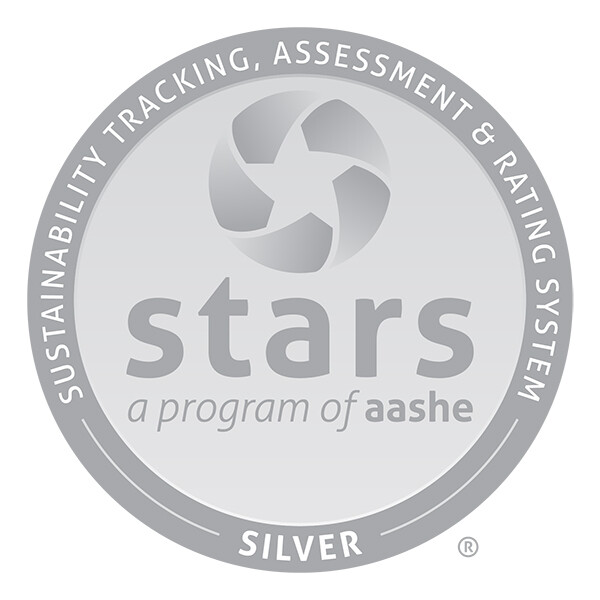
An international initiative has awarded the University of Nebraska–Lincoln a silver rating for its sustainability practices.
The award improves on a bronze rating UNL received in 2012. Both were earned through the Sustainability Tracking, Assessment and Rating System, a university and college-centric program organized by the Association for the Advancement of Sustainability in Higher Education.
“This is a huge improvement and reflects the university’s commitment to sustainability practices,” Prabhakar Shrestha, sustainability coordinator for UNL, said. “It also means UNL is no longer the only bronze-rated university among our Big Ten colleagues.”
The STARS rating system is a self-reporting tool that provides institutions with a benchmark to gauge progress in sustainability practices. The rating is earned through a wide-ranging assessment of campus programs, including the incorporation of sustainability teaching in curricula, engagement on and off campus, operations (from buildings and grounds to purchasing and transportation systems) on campus, and planning/administration of related initiatives.
The STARS system is also used to generate “green college” rankings issued by the Princeton Review and Sierra Club. UNL was included in both of those rankings for the first time in 2015.
Among the 10 participating Big Ten institutions, UNL, Indiana and Michigan State earned silver ratings. Gold-level honors went to Illinois, Iowa, Michigan, Minnesota, Ohio State, Penn State and Maryland. Those not participating were Northwestern, Purdue, Wisconsin and Rutgers.
Shrestha said UNL’s improvement from bronze to silver was primarily the result of the university putting additional time and research into completing a universitywide assessment of sustainability-related practices and programs.
“Definitely some of the rating improvement is due to how UNL practices sustainability and the programs we have in place,” Shrestha said. “However, if you dig into the numbers, our greatest area of improvement is in the academics section. That is because we completed an extensive review of the undergraduate bulletin to list courses that focus on sustainability-related outcomes or teach sustainability practices and included it in our STARS report.”
Community engagement is another key area of improvement. Area partnerships highlighted in UNL’s STARS report include Partners in Pollution Prevention, Prosper Lincoln and Nature Palooza.
While pleased with the improved rating, Shrestha said UNL has the potential to reach gold when the next rating is released in two years.
“Our sustainability program is relatively new, but we have good momentum and support from across campus,” Shrestha said. “Gold is something we can definitely reach with some work.”
Immediate areas of focus for Shrestha include asking faculty to provide information about UNL courses that include information related to sustainability education. He said UNL could also increase its rating by creating formal documents that outline sustainability initiatives and creating a sustainability master plan.
“The hope is this rating improvement starts a conversation that will create a focus on our sustainability efforts and how to improve them,” Shrestha said.
For more information on UNL sustainability efforts click here or contact Shrestha at pshrestha3@unl.edu or 402-472-1126.
A summary of UNL’s STARS report is available here. The complete list of the 760 participating universities and the new STARS rankings are available here.








